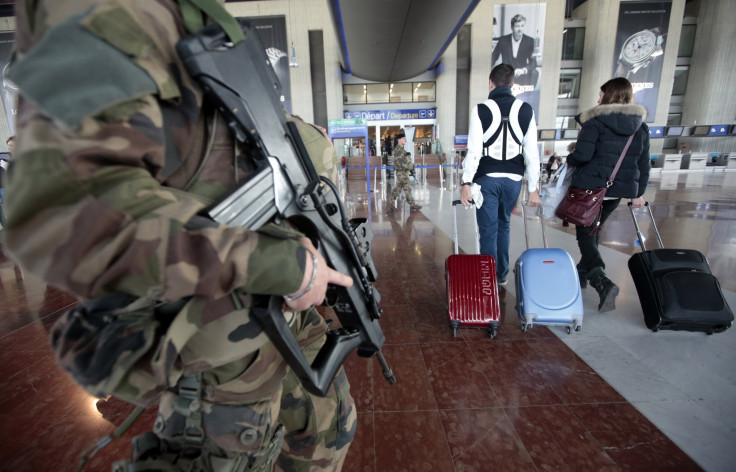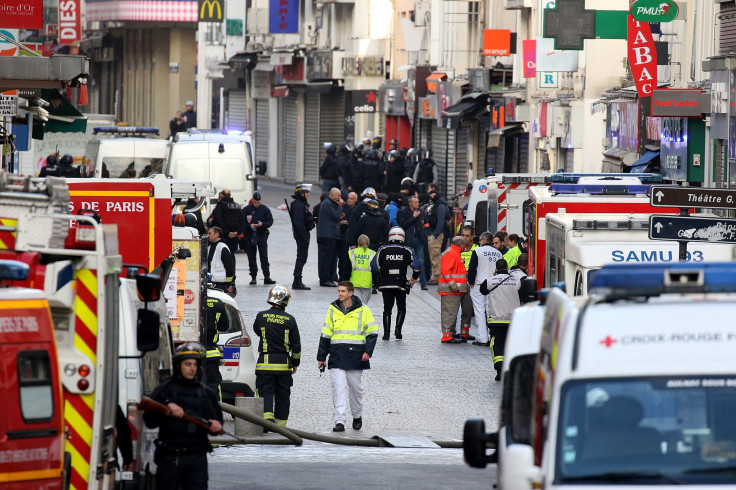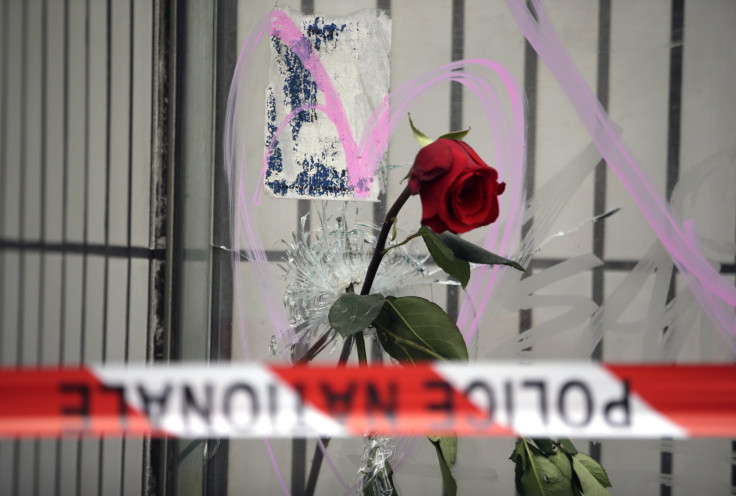In French State Of Emergency After Paris Attacks, Parisians Caught Between Freedom And Safety As Counterterrorism Laws Are Stepped Up

PARIS -- After the January terrorist attack on French satirical magazine Charlie Hebdo, France announced it would increase its security budget by 425 million euros ($490 million) to strengthen its counterterrorism capabilities and begin the “profound” monitoring of nearly 3,000 people with suspected ties to terrorism. Less than a year later, France is more in need of heightened counterterrorism strategies than ever, following Friday’s coordinated assaults that saw seven attackers terrorize thousands across Paris and kill 129 with Kalashnikovs and explosive devices.
French Prime Minister Manuel Valls announced Thursday that France could face chemical or biological attack from terror groups and French President François Hollande proposed Wednesday to extend the national state of emergency, which he enacted in the hours after the attacks, for up to three months starting Nov. 26.
“It is essential to reinforce the fight against terrorism for administrative authorities to use such measures for a limited period,” the document presented to the Council of Ministers on Wednesday stated. “The severity of the attacks, their simultaneity and the permanence of the threat that were established by the intelligence services and the international situation justified this measure.”
Extending the state of emergency is part of France’s renewed commitment to counterterrorism operations within the country. A main focus of their efforts is through cybersecurity, as French security sources believe social media and networking sites play a role in radicalization of members of the community in addition to facilitating the planning and executing of an attack.
Hollande invoked Law no. 55-385 of April 3, 1955, which was created during France’s Algerian war, only the second time since World War II that a president has exercised this power on French soil. The last time was a decade ago when riots broke out in response to the deaths of two teenage immigrants, Zyed Benna and Bouna Traore. According to the law, a state of emergency can be declared for up to 12 days; if a longer period is needed, the President must pass a law through Parliament approving the extension. The vote is going ahead on Thursday -- an extension is likely to be granted since the investigation into the attacks is ongoing, and, according to ministry of interior, an extension is necessary to ensure its success.
Despite the constraints to personal freedoms that come with a state of emergency -- including limitations on public gatherings and travel restrictions -- most Parisians are prepared to sacrifice certain liberties for security.
“For the moment I think the state of emergency is necessary in order to quickly find the attackers’ accomplices and obtain the maximum amount of informations on the attacks,” said Gwen, a Parisian in her twenties who asked that her last name not be published.

“It is an extraordinary time and it takes extraordinary measures, and I understand that declaring a state of emergency here in France is quite unusual,” Bonnie Schaefer, a resident of France’s Saint-Denis district, the site of Wednesday morning’s dramatic police raids, told International Business Times.
Some Parisians worry that France’s commitment to fighting terrorism within the country will infringe on the civil liberties that French society is built on, while others are surprised to discover that during the initial shock and fear in the aftermath of the attacks they were ready to give up their hard-won freedoms.
“I was about to say yes, let's monitor everyone. But then I realized I'm too shocked to think rationally,” said Camille Hamet, a 26-year-old French writer who lives in Paris. “How can we defend our values and our way of life if we throw them away because of fear?”
The government will have the power to assign to house arrest those the ministry of interior determines are a threat to security or public order and can perform searches on persons of interest in their homes, cars and outside. For now, large public gatherings are also banned; however, French MPs removed a provision that you have allowed the government to censor press, radio, theater productions and movies.
Hamet, after contemplating the implications of such a law, concludes that three months is a small sacrifice to make in exchange for safety.
“It seems like this state of emergency can help the police and the authorities to be efficient in their investigations. It’s just for three months. It doesn't change how things usually work.”
Her words are echoed by many young Parisians that spoke to IBT. Safety, it seems, is almost everyone’s main priority, and many are willing to exchange freedoms for security.
“Now I think, OK, come search me, do whatever you want, but keep me safe,” said Amandine Barras, 29, a public housing worker in some of Paris’ most socioeconomically deprived neighborhoods. “If it's necessary for a while now then it’s OK.”

But Schaefer, who lives just two metro stops from Wednesday’s raid in Saint-Denis on an apartment building where several suspected terrorists were hiding out, is worried that the new laws will encourage hate crimes against ethnic and religious minorities in the area.
“It probably will infringe upon civil liberties, but I am also very concerned about ordinary people taking measures against certain populations directly. Hate shouldn't beget hate,” she said.
Young people have also expressed concern that the crackdown on social media by French security services, will not be able to prevent an attack but only serve to make public personal information.
“It’s a mark on our freedom,” said Stephane Roro, 29, an employee at France’s Ministry of Agriculture. “It won’t change the problem. There will always be people who want to attack.”
© Copyright IBTimes 2024. All rights reserved.






















